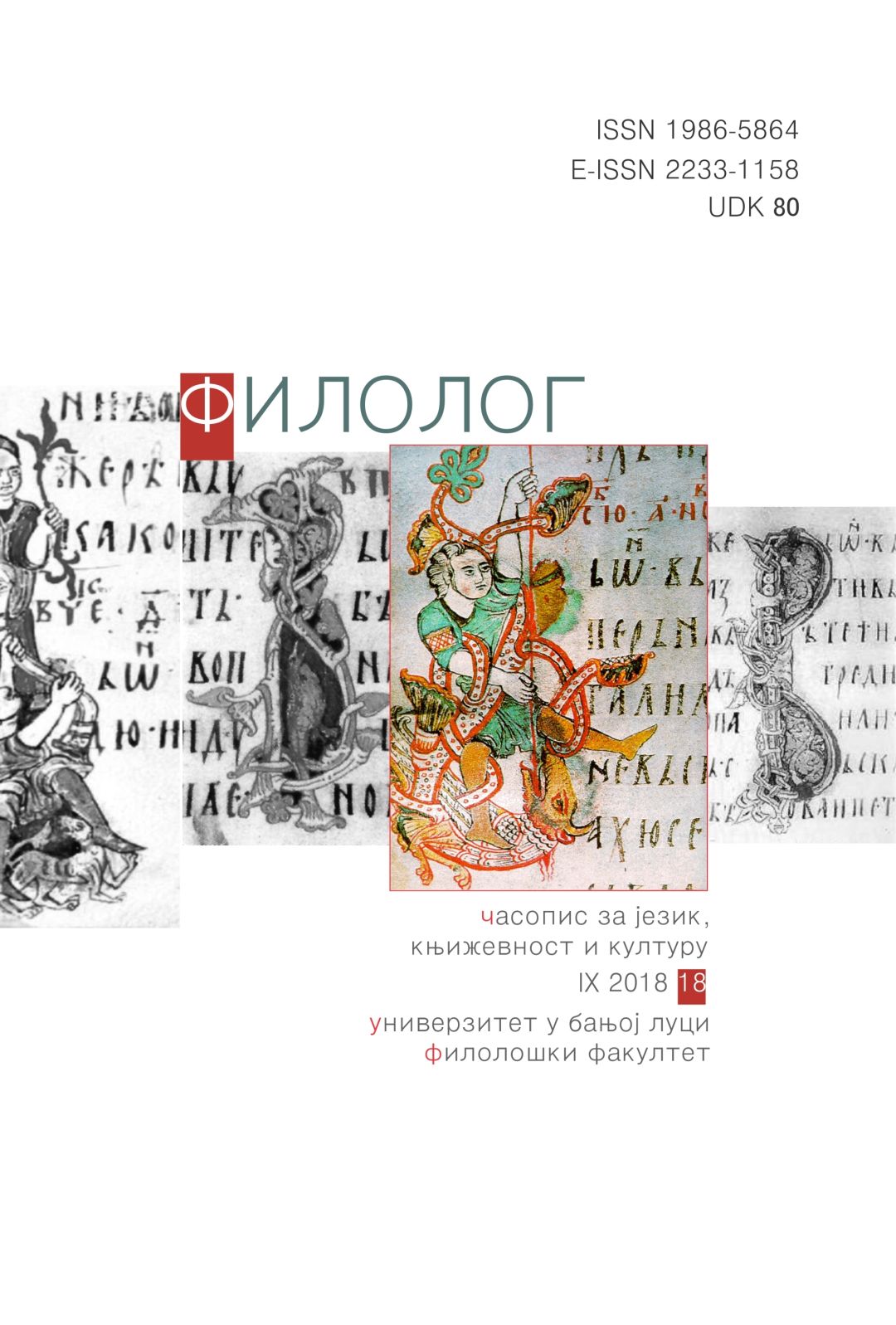Англицизми у спортском регистру – семантичка екстензија и оправданост
Anglicisms in Sports Lexicon – Semantic Extensions and Its Justification
Author(s): Jovana D. TomićSubject(s): Language studies, Language and Literature Studies, Media studies, Lexis, Semantics, Comparative Linguistics, South Slavic Languages, Philology
Published by: Филолошки факултет Универзитета у Бањој Луци
Keywords: English; Serbian; newspaper style; Angloserbian language; Anglicisms; justification; semantic extension.
Summary/Abstract: This paper discusses the influence of English on the Serbian language in sports newspaper discourse, starting from theoretical assumptions of contact linguistics, sociolinguistics theory of stratification of language, changing of codes and linguistic borrowing, which raises the question of the existence of the Angloserbian language as a variety of the Serbian language, formed under the influence of English. As can be observed, the use of foreign words of English origin – Anglicisms will be the subject of our paper. In this regard, this paper should answer two questions: whether those Anglicisms are justified or not, what is their status in the language and the level of their semantic adaptation. Starting from the fact that Anglicisms can be classified into several groups: quite justified, through to justified and unjustified and totally unjustified, the paper looks into the justifiability of recent Anglicisms in the Serbian language and its semantic extension. The corpus will be limited to the electronic version of the news magazine, two Serbian dailies (Novosti and Blic) from 2017/18. As an auxiliary corpus in the survey we used dictionaries of new words. Adaptation of anglicisms at the semantic level comprises various changes of meaning that occur at the process of borrowing. Three types of semantic changes have been analysed in this paper, changes in semantic extension: zero extension, expansion of meaning and narrowing of meaning. A considerable number of loanwords undergo zero semantic extension; they preserve their original meaning. Expansion of meaning is a secondary change since loanwords in the borrowing language acquire new meanings unknown in the source language. The narrowing of meaning is a frequent semantic change. Today’s presence of Anglicisms in the Serbian language is, given the high levels of exposure of Serbian speakers to English, an inevitable and expected phenomenon. Some Serbian linguists fear that Anglicisms are slowly supplanting Serbian words, which might eventually lead to forgetting who we are. The cause of this is frequently seen in the lack of adequate and institutionalised care of the Serbian language, marked by a lack of a centrally controlled language policy and consistent language planning, and by an easily observable disregard for Serbian in public communication. Furthermore, they regret the lack of an active relationship with English loanwords, that is, the activation of the Serbian language’s own linguistic potential also allowing the creation of native equivalents to Anglicisms. Today’s presence of Anglicisms in Serbian is rarely seen as the wealth, or conversely, the detriment of the Serbian language. It is rather perceived to imply or indicate: that first, Serbia(n) is ensuing the globalisation of the modern world and the influence of English as a global language; and second the subsequent missing role of the media in the popularisation of Serbian equivalents to Anglicisms. To sum up, the parallel use of Anglicisms and their native equivalents creates space for the semantic and stylistic diversification of language and for a freedom of linguistic choice.
Journal: Филолог – часопис за језик, књижевност и културу
- Issue Year: 2018
- Issue No: 18
- Page Range: 209-232
- Page Count: 24
- Language: Serbian

